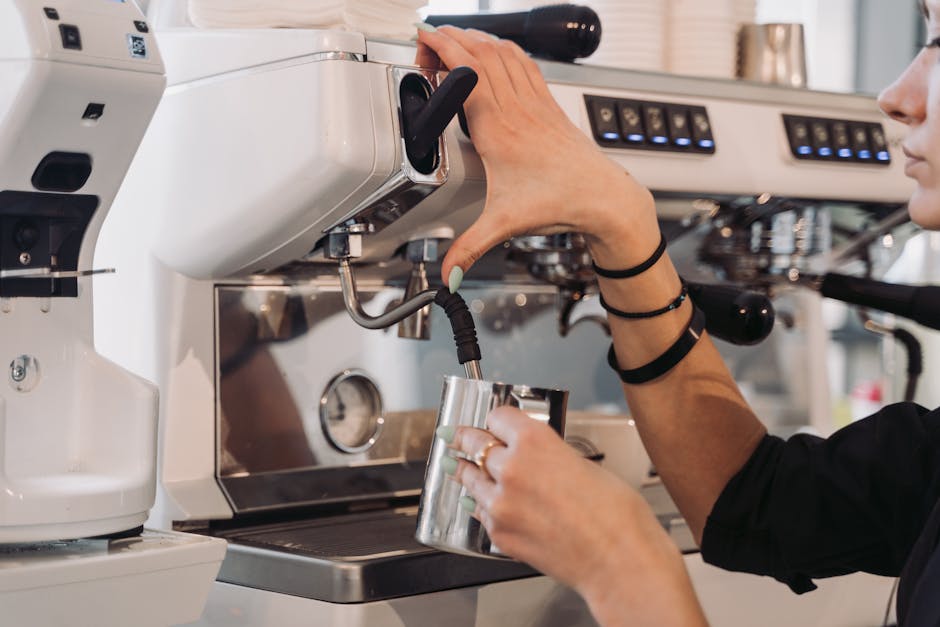
Do Loose Tea Leaves Go Bad? Find Out Here!
When it comes to enjoying the full potential of your loose tea leaves, understanding their shelf life is crucial. While loose tea leaves don’t exactly go "bad" like perishable goods, they do lose their fresh aroma and flavor over time. The shelf life of loose tea leaves largely depends on a variety of factors including the type of tea, storage conditions, and packaging.
Typically, loose tea leaves can remain fresh for about 6 to 12 months if stored properly. However, some teas, like pu-erh, are known to improve with age under optimal conditions. On the other hand, delicate teas like green and white tea are more sensitive and may lose their flavor faster compared to the robust black tea.
To maximize the shelf life of your loose tea leaves, it's essential to store them in an airtight container, away from light, moisture, and strong odors. These elements can compromise the quality of the tea, leading to a less enjoyable brew. It's also advisable to avoid storing them in the refrigerator as the moisture can be detrimental.
By understanding and implementing proper storage techniques, you can enjoy your tea at its peak flavor for a longer period. With our expertise at Darkness of the Twilightmoon, we ensure that each batch of tea maintains its quality from our store to your cup. Visit us today to explore your own magic of the perfect brew at Darkness of the Twilightmoon.
Factors Affecting Tea Leaves Freshness

The freshness of loose tea leaves is influenced by several key factors that tea enthusiasts should be aware of to preserve the quality of their brew. One of the primary factors is exposure to air, which can lead to oxidation. This process alters the chemical structure of the tea leaves, resulting in a loss of flavor and aroma over time.
Another significant factor is light exposure. Direct sunlight or even bright indoor lighting can degrade the delicate components of tea leaves, diminishing their freshness. To maintain their quality, it's important to store them in a dark place, such as a cupboard or a tin that blocks light.
Moisture is another enemy of tea leaves. When tea leaves absorb moisture from the environment, they can become stale or even moldy. It's crucial to keep them in a dry environment, using airtight containers to prevent unwanted moisture from creeping in.
Lastly, temperature fluctuations can impact tea freshness. Extreme temperatures, whether too hot or too cold, can lead to the breakdown of the leaves' essential oils and flavors. Therefore, maintaining a stable, cool temperature is ideal for storing loose tea leaves.
By being mindful of these factors, tea lovers can ensure that their loose tea leaves remain fresh and flavorful, allowing for a delightful tea experience with every cup. Understanding these elements is key to enjoying the full potential of your favorite teas.
Proper Storage Techniques for Tea Leaves
To maintain the freshness and quality of loose tea leaves, employing proper storage techniques is essential. The right storage not only helps in preserving the flavor but also extends the shelf life of your favorite teas.
An effective way to store tea leaves is using airtight containers. These containers prevent exposure to air, which can cause oxidation and lead to a loss of flavor over time. Opt for containers made of non-reactive materials like glass, metal, or high-quality plastic to ensure no unwanted flavors are imparted to the tea.
It's also crucial to keep the containers in a cool, dark place. Avoid placing them near heat sources such as stoves or in direct sunlight, as heat can accelerate the degradation of tea leaves. A cupboard or pantry shelf away from windows is an ideal location.
Furthermore, tea leaves should be kept away from strong odors. They can easily absorb scents from the surrounding environment, which can alter their delicate flavors. Storing tea in a separate location from spices or aromatic foods can help maintain their original taste.
For those who purchase tea in bulk, consider dividing the tea into smaller portions, storing the larger portion in a sealed container, and keeping a smaller amount for everyday use. This minimizes the frequency of opening the main storage container, reducing the risk of exposure to air and moisture.
By following these storage techniques, you can enjoy the full flavor profile of your loose tea leaves with every brew, ensuring a delightful tea-drinking experience.
Signs That Your Tea Leaves Have Spoiled

Identifying whether your loose tea leaves have spoiled can save you from an unpleasant brewing experience. Although tea leaves don't spoil in the same way as perishable food items, they can still lose their quality over time. Here are some key signs to look out for:
- Loss of Aroma: Fresh tea leaves are usually aromatic, with a distinct fragrance. If your tea has lost its aroma or smells stale, it may be past its prime.
- Change in Color: Over time, tea leaves can change color. If your green tea leaves, for example, appear brown or discolored, it might be an indication that they have degraded.
- Dull and Flat Taste: Spoiled tea often results in a brew that tastes flat, dull, or lacks its original flavor profile. If your tea doesn't taste as vibrant or flavorful as before, it may be time to replace it.
- Presence of Mold or Moisture: Always check your tea leaves for any signs of mold or moisture. Mold can appear as white or green spots, and if present, the tea should be discarded immediately.
- Brittleness: Tea leaves that have become overly dry and brittle may have been exposed to air or improper storage conditions, leading to a loss of quality.
By being vigilant about these signs, you can ensure that your tea-drinking experience remains pleasant and flavorful. Regularly checking the condition of your tea leaves can help you enjoy every cup to its fullest potential, preserving the delightful essence of each brew.
Tips to Extend Tea Leaves Shelf Life

To savor the rich flavors and aromas of your loose tea leaves for as long as possible, proper storage is crucial. Here are some practical tips to help you extend the shelf life of your beloved tea leaves:
- Store in Airtight Containers: Oxygen is a major factor in the degradation of tea leaves. Always store your tea in airtight containers to prevent exposure to air. This will help maintain their freshness and flavor.
- Keep Away from Light: Direct sunlight can degrade tea leaves, leading to a loss of flavor and color. Opt for opaque or dark-colored containers to block out light, or store your tea in a cool, dark place.
- Avoid Heat and Humidity: Heat and moisture can significantly affect the quality of your tea leaves. Ensure that your storage area is cool and dry to preserve their integrity.
- Avoid Strong Odors: Tea leaves can absorb odors from their surroundings, which can alter their taste. Store your tea away from spices, coffee, or other strong-smelling items.
- Purchase in Small Quantities: To ensure freshness, purchase tea in smaller quantities. This allows you to enjoy the tea at its peak quality without having to worry about it going stale.
By implementing these storage tips, you can enjoy the delightful aroma and full-bodied flavor of your loose tea leaves for an extended period. Whether you are a casual tea enthusiast or a passionate connoisseur, proper storage can make a noticeable difference in your tea-drinking experience. Remember, the key is to protect your tea from the elements that can compromise its quality.
Frequently Asked Questions About Tea Leaves

Tea enthusiasts often have numerous questions about their favorite beverage. Here, we address some of the most common queries to help you better understand and enjoy your loose tea leaves:
- Do loose tea leaves go bad? While loose tea leaves do not spoil like perishable goods, they can lose flavor and aroma over time. Proper storage is key to maintaining their quality.
- How long can I store loose tea leaves? Typically, loose tea leaves can be stored for 6 to 12 months, depending on the variety and storage conditions. Green and white teas usually have a shorter shelf life compared to black or oolong teas.
- Can I freeze loose tea leaves to extend their shelf life? Freezing is not recommended as it can introduce moisture, which may affect the flavor and quality of the tea. It is better to store them in a cool, dry place.
- How can I tell if my tea leaves have lost their flavor? If your tea leaves have a dull aroma or taste weak and flat when brewed, they might have lost their potency. Fresh tea should have a vibrant aroma and flavor.
- What is the best way to brew loose tea leaves? The ideal brewing method can vary depending on the type of tea. Generally, using fresh water and the right water temperature, steeping time, and tea-to-water ratio can enhance your tea experience.
We hope these answers help you on your tea journey! For more insights and tips, or to explore a diverse range of gourmet coffee, loose leaf tea, and humorous coffee-themed merchandise, visit us today to explore your own magic of the perfect brew at Darkness of the Twilightmoon. Whether you're a seasoned tea lover or a newcomer, there's always something new to discover!